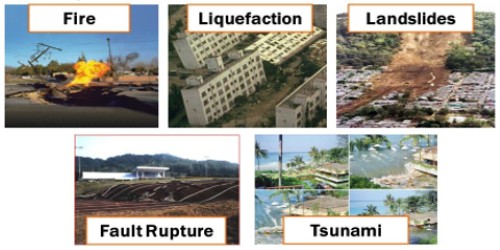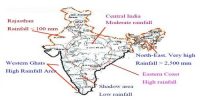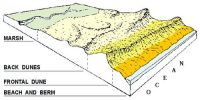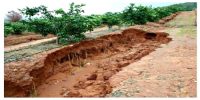Effects of Earthquakes
Earthquakes are by far the most unpredictable and highly destructive of all the natural disasters. As compared to these, the earthquakes associated with the volcanic eruption, rock fall, landslides, subsidence, particularly in the mining areas, impounding of dams and reservoirs. etc. have a limited area of influence and the scale of damage. Most earthquake-related deaths are caused by the collapse of structures and the construction practices play a tremendous role in the death toll of an earthquake. Earthquakes have all-encompassing disastrous effects on the area of their occurrence. Some of the important ones are listed in Table.
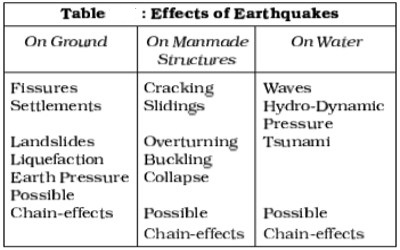
Apart from these, earthquakes also have some serious and far-reaching environmental consequences. Surface seismic waves produce fissures on the upper layers of the earth’s crust through which water and other volatile materials gush out, inundating the neighboring areas. Earthquakes are also responsible for landslides and often these cause obstructions in the flow of rivers and channels resulting in the formation of reservoirs. Sometimes, rivers also change their course causing floods and other calamities in the affected areas.
Effects of Earthquakes:
- The reason the loss of human life due to fall down of buildings.
- Transport is exaggerated due to the distraction of road systems.
- Infrastructure like buildings, dams, and bridges develop cracks due to earthquakes.
- Earthquakes have economic effects like a setback in trade and agriculture.
- Problems begin due to deficiency of electricity.
